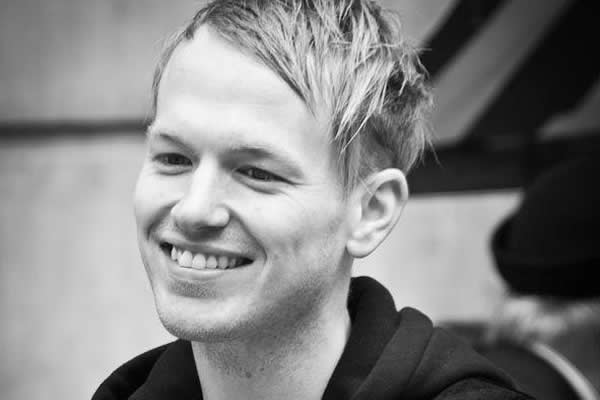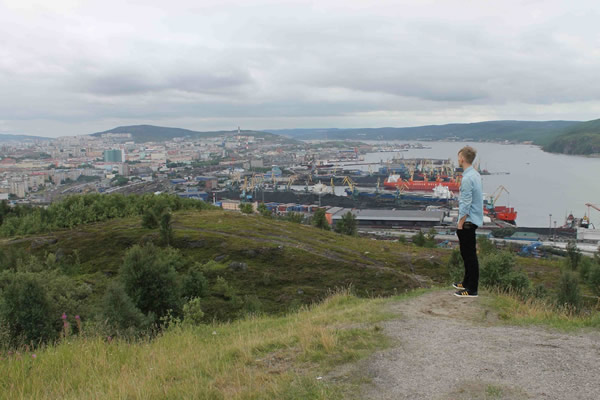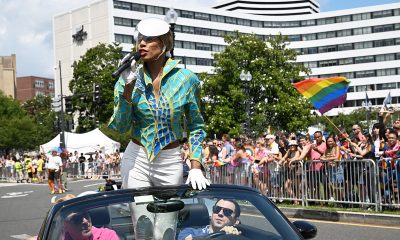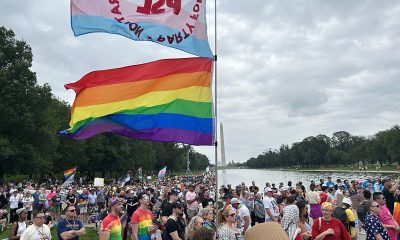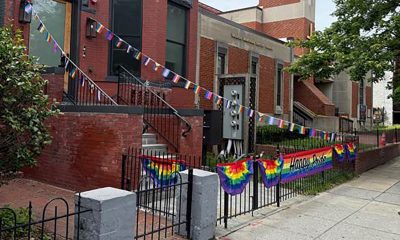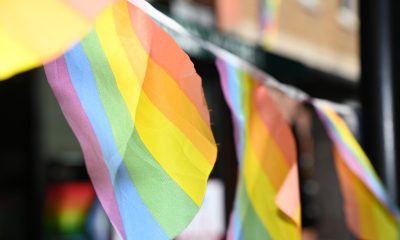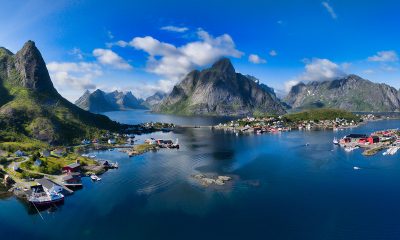News
Dutch activist recalls arrest under anti-gay Russian law
Claims police used anti-gay slurs, accused him of spying
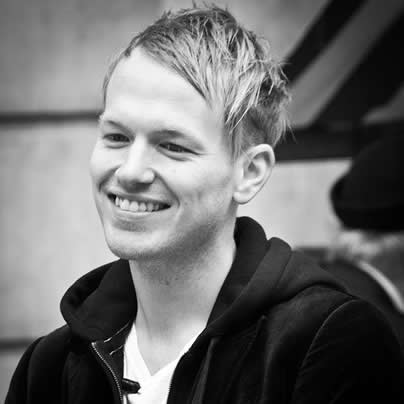
One of the four Dutch LGBT rights advocates whom Russian authorities arrested in July told the Washington Blade he feels they wanted to use them as an example of what could happen to anyone who challenges the country’s gay propaganda to minors ban.
“They thought that we came there to make the Russian law or Russian authorities [look] ridiculous,” Kris van der Veen said during an interview from his home in the Dutch city of Groningen on Sept. 27. “It was not the case, but they think we were doing that.”
Van der Veen, 33, and three other Dutch LGBT rights advocates traveled to Murmansk to film a documentary about LGBT life in Russia. They interviewed members of Coming Out and the Russian LGBT Network and organizers of an LGBT film festival in St. Petersburg before they arrived in the city.
Groningen and Murmansk have been sister cities for nearly 25 years, and the coordinator of the program helped van der Veen and his colleagues secure a cultural visa that he said allowed them “start a dialogue about any subject with” the city’s residents. Van der Veen said it also permitted him and his fellow advocates to discuss homosexuality while in Russia because “it’s not specified.”
The trip also coincided with a year-long series of events that commemorated the 400th anniversary of friendship between Russia and the Netherlands.
“I thought, well I will go there, I will ask them about their lives and if the anti-gay law has any effect on their lives,” van der Veen told the Blade. “So that’s what I did.”
Van der Veen said he and a group of up to 20 others that included his fellow activists and their crew arrived at a summer camp in Murmansk on July 20.
He said he discussed Dutch LGBT advocacy efforts during a lecture he gave on human rights. Van der Veen said he also filmed some of the other seminars on the same topic – and interviewed a Russian teenager and her girlfriend.
Van der Veen said authorities detained him and his colleagues on July 21 as they tried to leave the camp and return to Murmansk to get footage of the city.
“I walked into this hallway and then when I turned the corner I saw about 15 police officers — men, women in uniforms, without uniforms — coming towards me,” he recalled. “They were also spreading into other hallways and rooms.”
Van der Veen said the officers told him in Russian that he had to return to the room “where the rest of the people were.” He said the Russian activists who had organized the human rights lectures “stood up for us” and began to speak with the authorities. In spite of these efforts, Van der Veen said immigration officials requested to see his and his colleagues’ passports and told them to go with them into another room.
Van der Veen told the Blade they interrogated him and the three other Dutch LGBT rights advocates for three hours. They subsequently received a fine of 3,000 rubles or roughly $93.
“We thought, OK we get a fine, it’s now over,” Van der Veen said. “Then they said there are also police officers [who] want to talk to you.”
He said uniformed police officers and others whom he described as KGB agents questioned them for another five hours. Van der Veen categorized one of the officials as “very provocative.”
“The first thing he said was, this is a police hat. You can wear it and I can take a picture of you,” he said, noting the officer was standing less than a foot in front of him. “I couldn’t say no, but I had to say no because I think otherwise I would make fun of the Russian authorities if I would take the hat and put it on my head. He also said I can take a picture of you.”
Van der Veen said the authorities referred to him as a spy and used unspecified anti-gay slurs against him while in custody. He told the Blade they said the teenager whom he interviewed for his documentary was a minor.
“She was already a part of the LGBT community in Murmansk,” van der Veen said. “They were already out of the closet… so I wasn’t doing any propaganda towards minors.”
Van der Veen said authorities also asked him whether he told people to “become gay because it’s good to be gay.”
“I was laughing because I thought it was a ridiculous question,” he said.
Van der Veen said the authorities released him and his fellow advocates at 11 p.m. on July 21 — eight hours after they initially detained them. He told the Blade they ordered them to go to court the next morning, even though they did not obtain a warrant to arrest them.
Van der Veen said he and his colleagues thought they could leave the city and return to the Netherlands after 5 p.m. on July 22 because a judge had yet to hear their case. He said Russian police officers who had called him 20 times told them they had to go to a Murmansk hotel and explain the contents of the hard drive that had been taken from them at the summer camp the previous day.
Van der Veen told the Blade the Dutch Ministry of Foreign Affairs told him and his colleagues to leave the country as soon as possible. The six police officers whom he said met them at the airport told them to go to “a certain address in Murmansk” the next day.
“They wanted to keep us there, but we didn’t sign anything because the consulate said we have rights, we have the right to talk to a lawyer and to have a translator in our own language,” van der Veen said. “We pressed and pressed on that. It was very scary because of the look in their eyes… there’s no dialogue.”
Van der Veen said the Dutch consulate in St. Petersburg received a letter upon his return to the Netherlands that he and his colleagues could not return to Russia for three years. He added police spoke with the Murmansk-based coordinator of the sister city program with Groningen on several occasions.
Van der Veen described these visits as “very provocative.”
“Police officers were very angry that we came there,” he said. “They were telling us on Sunday [July 21] that our government should tell us about Russian laws and about the anti-gay laws and that we can’t do this like we were 7-year-olds.”
The Murmansk incident coincided with mounting outrage over the gay propaganda law that President Vladimir Putin signed less than a month before van der Veen and his colleagues traveled to the city.
The Dutch LGBT advocacy group COC Nederland, President Obama and retired tennis champion Martina Navratilova are among those who have publicly criticized the Kremlin over the statute and its overall gay rights record. Others, including actor and playwright Harvey Fierstein, have called for a boycott of the 2014 Winter Olympics that will take place in Sochi, Russia, in February.
Van der Veen told the Blade he does not support a boycott of the Sochi games.
“If there’s an opportunity to go [to Russia] I think we should go there, use our influence, our contacts to give a global stage to the topic of equal rights and also LGBT people in Russia,” he said.
He said he plans to finish the documentary by the end of November.
District of Columbia
WorldPride wraps up after epic weekend of events
Historic LGBTQ celebration brings color, music, activism to nation’s capital
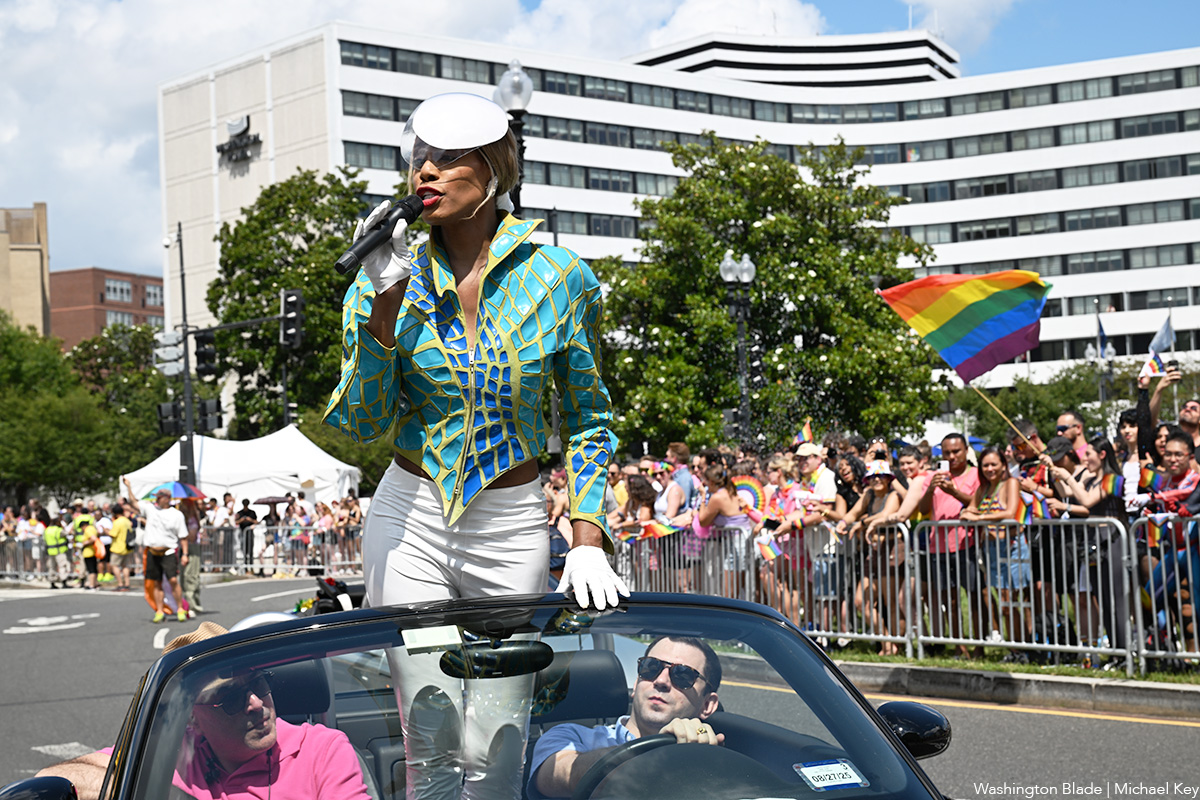
After more than two years of preparation, thousands of volunteers, countless LGBTQ community members and allies, queer celebrities, and hundreds of events across the district, WorldPride in Washington has come to a close.
“It has been an extremely powerful three weeks,” Ryan Bos, executive director of the Capital Pride Alliance, told the Blade on Sunday at the International March on Washington for Freedom. “This weekend has been well above expectations in relation to the energy and the crowds.”
WorldPride celebrations were set to kick off on May 31 with Shakira’s “Las Mujeres Ya No Lloran World Tour,” but following reports of stage issues, the Colombian superstar canceled her D.C. show—and her Boston stop the day prior.
The festivities got into full swing on June 4 with the 2025 Human Rights Conference. Held at the J.W. Marriott, the three-day gathering brought together more than 800 attendees, including Jessica Stern, Spanish Sen. Carla Antonelli, Peruvian Congresswoman Susel Paredes, and Mariann Edgar Budde of the Washington National Cathedral.
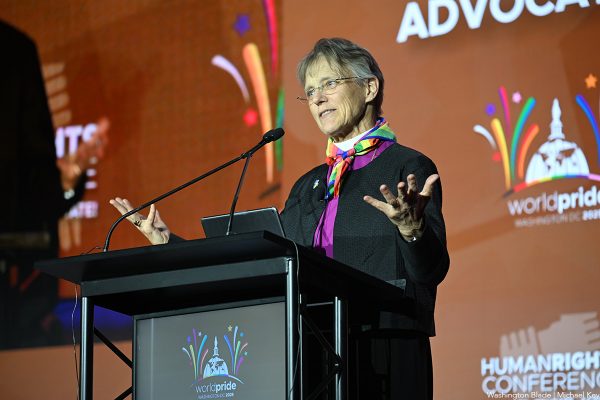
Following the conference, Capital Pride hosted the annual Capital Pride Honors and Gala, recognizing outstanding figures in LGBTQ advocacy. Honorees included Cathy Renna, Jerry St. Louis, Ernest Hopkins, Lamar Braithwaite, Rev. Dr. Donna Claycomb Sokol, Kriston Pumphrey, Gia Martinez, Kraig Williams, and SMYAL.
As the week went on, the tone shifted from formal to festive. Venues across the city filled with partygoers draped in glitter and rainbows, dancing and celebrating love in all forms. From the 17th Street Block Party and Full Bloom celebration to Kinetic’s dance events and the Pride on the Pier boat parade and fireworks (presented by the Washington Blade), nearly every corner of D.C. turned into a dancefloor. The Wharf was transformed into a Pride dance party on both Friday and Saturday nights for the Blade’s annual Pride on the Pier and culminated in the city’s only Pride fireworks display.
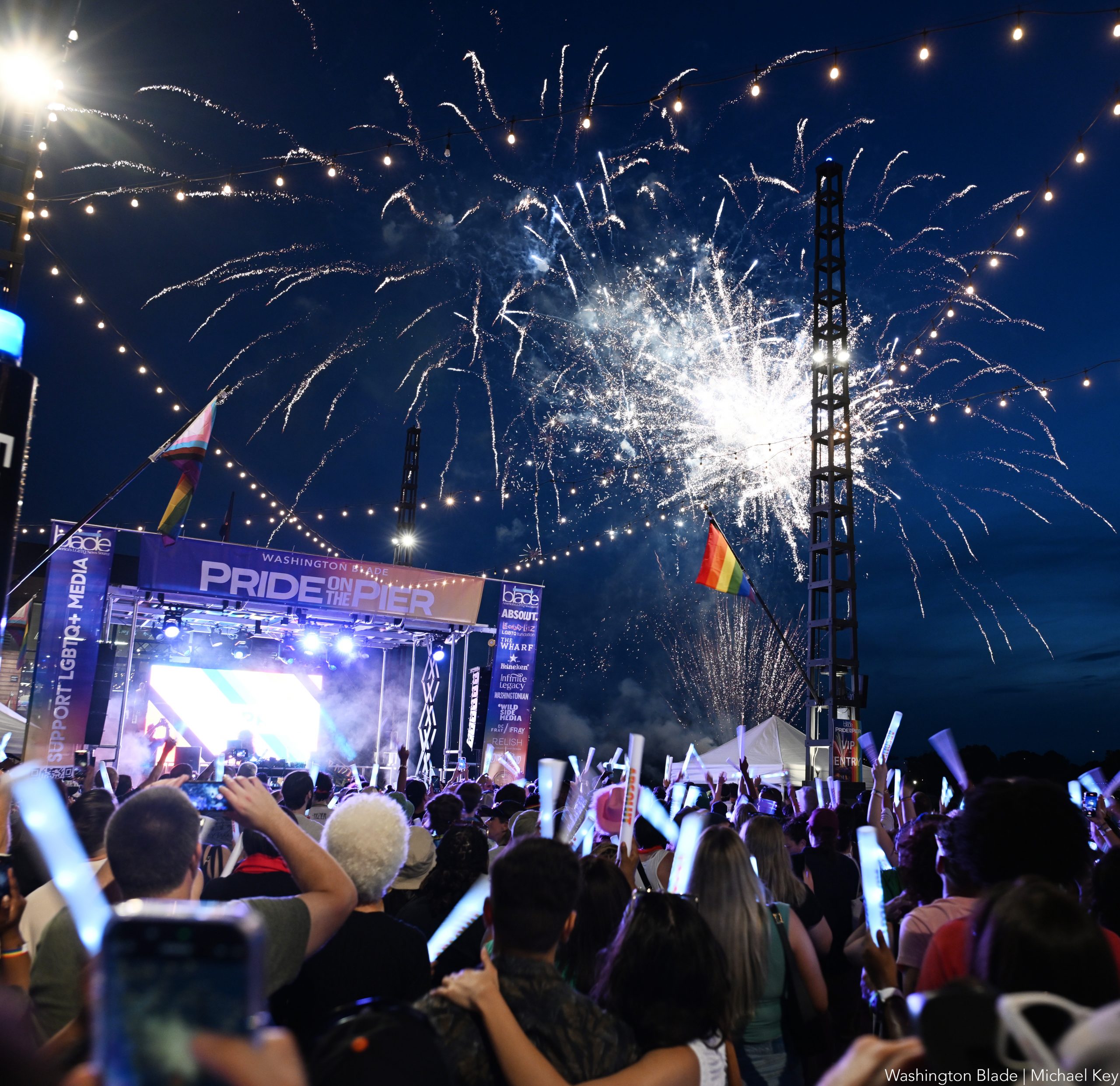
The annual Pride Parade was a standout. The nearly six-hour-long march drew hundreds of thousands to 14th Street, stretching toward the Capitol. A 1,000-foot rainbow flag led the way as parade grand marshals Renée Rapp and Laverne Cox waved to cheering crowds. Confetti, beads, condoms, and joy poured from elaborate floats.
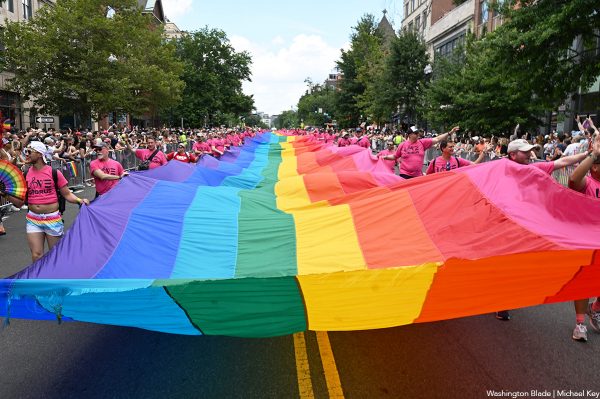
The parade fed into the WorldPride Street Festival and Concert, which for the first time spanned two days. The festival featured hundreds of booths—from queer merch and leather vendors to nonprofit fundraisers—and drew thousands of LGBTQ attendees under sunny skies.
Evenings wrapped with free concerts headlined by LGBTQ talent and allies, including Cynthia Erivo and Doechii. Other crowd favorites included Khalid , David Archuleta, and Kristine W.
At the RFK Stadium grounds, the WorldPride Music Festival drew thousands for powerhouse performances by Troye Sivan, RuPaul, Kim Petras, and Renée Rapp. Under glowing rainbow lights, fans danced and sang through the night.
Despite security concerns, no major issues were reported, though a few minor incidents occurred.
One of the biggest pre-event concerns was safety for LGBTQ attendees amid rising anti-LGBTQ rhetoric and anti-trans policies from the Trump administration. Multiple countries issued travel warnings for trans and gender-nonconforming individuals visiting the U.S., but turnout—including trans folks and their allies—remained strong and visible throughout.
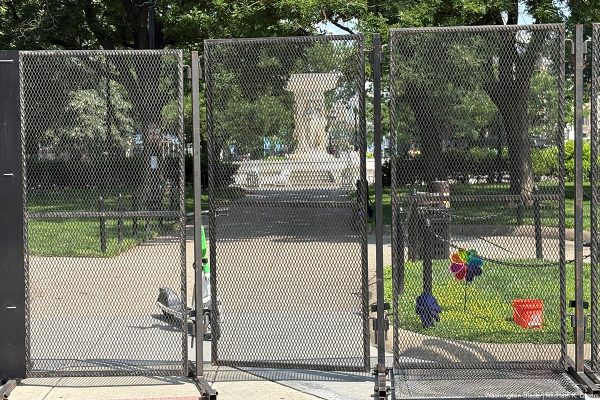
Another flashpoint was the temporary closure of Dupont Circle, a cornerstone of D.C.’s—and the nation’s—LGBTQ rights movement. The U.S. Park Service initially closed the park, citing the need to “secure the park, deter potential violence, reduce the risk of destructive acts and decrease the need for extensive law enforcement presence”—despite the MPD Chief’s request to keep it open. Strong public backlash led to a reversal, and soon the park was full of rainbow-clad LGBTQ people celebrating freely.
On Saturday night following the parade, two juveniles were stabbed in Dupont Circle. However, MPD later confirmed the incident was unrelated to WorldPride celebrations.
The weekend ended with the International Rally and March on Washington for Freedom. Hundreds of LGBTQ people and allies gathered at the steps of the Lincoln Memorial to hear prominent activists speak on why Pride is still essential in 2025. Speakers called out rising hate and violence—and named Trump directly. As rain began to fall, the crowd only grew, marching from the Memorial to the Capitol, signs raised high, ending WorldPride as the first Pride began—as a protest.
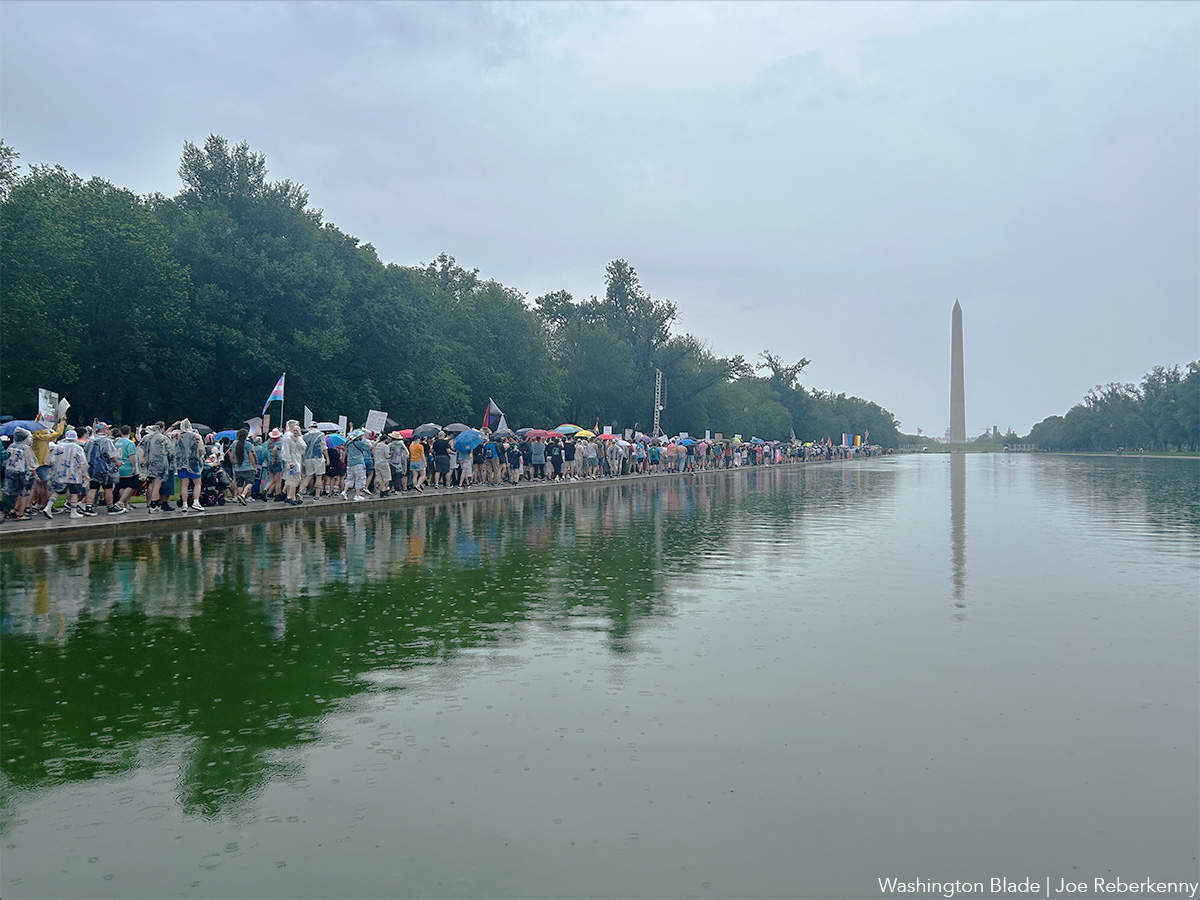
Congress
51 lawmakers sign letter to Rubio about Andry Hernández Romero
U.S. Rep. Robert Garcia (D-Calif.) spoke about gay Venezuelan asylum seeker

Forty nine members of Congress and two U.S. senators, all Democrats, signed a letter Monday to Secretary of State Marco Rubio demanding information about Andry Hernández Romero, a gay Venezuelan national who was deported to El Salvador and imprisoned in the country’s notorious Terrorism Confinement Center, a maximum-security prison known by the Spanish acronym CECOT
“We are deeply concerned about the health and wellbeing of Mr. Hernández Romero, who left
Venezuela after experiencing discriminatory treatment because of his sexual orientation and
opposition to Venezuela’s authoritarian government,” the lawmakers wrote. They urged the State Department to facilitate his access to legal counsel and take steps to return him.
After passing a credible fear interview and while awaiting a court hearing in March, agents with U.S. Immigration and Customs Enforcement reportedly transported Hernández out of the U.S. without due process or providing evidence that he had committed any crime.
In the months since, pressure has been mounting. This past WorldPride weekend in Washington was kicked off with a rally in front of the U.S. Supreme Court and a fundraiser, both supporting Hernández and attended by high profile figures including members of Congress, like U.S. Rep. Mark Takano (D-Calif.)
U.S. Rep. Robert Garcia (D-Calif.) was among the four members who wrote to Rubio about Hernández in April. On Friday, he spoke with the Washington Blade before he and his colleagues, many more of them this time, sent the second letter to Rubio.
“There’s a lot of obviously horrible things that are happening with the asylum process and visas and international students and just the whole of our value system as it relates to immigration,” he said, which “obviously, is under attack.”
“Andry’s case, I think, is very unique and different,” the congressman continued. “There is, right now, public support that is building. I think he has captured people’s attention. And it’s growing — this is a movement that is not slowing down. He’s going to be a focal point for Pride this year. I mean, I think people around the world are interested in the story.”
Garcia said he hopes the momentum will translate to progress on requests for proof of life, adding that he was optimistic after meeting with Hernández’s legal team earlier on Friday.
“I mean, the president, Kristi Noem, Marco Rubio — any of these folks could could ask to see if just he’s alive,” the congressman said, referring to the secretary of Homeland Security, whom he grilled during a hearing last month. ICE is housed under the DHS.
“People need to remember, the most important part of this that people need to remember, this isn’t just an immigration issue,” Garcia noted. “This is a due process issue. This is an asylum case. We gave him this appointment. The United States government told him to come to his appointment, and then we sent him to another country, not his own, and locked him up with no due process. That’s the issue.”
Garcia said that so far neither he nor his colleagues nor Hernández’s legal team were able to get “any answers from the administration, which is why we’re continuing to advocate, which is why we’re continuing to reach out to Secretary Rubio.”
“A lot more Democrats are now engaged on this issue,” he said. U.S. Sens. Adam Schiff and Alex Padilla, both from California, joined Monday’s letter. “The more that we can get folks to understand how critical this is, the better. The momentum matters here. And I think Pride does provide an opportunity to share his story.”
Asked what the next steps might be, Garcia said “we’re letting his legal team really take the lead on strategy,” noting that Hernández’s attorneys have “already engaged with the ACLU” and adding, “It’s very possible that the Supreme Court could take this on.”
In the meantime, the congressman said “part of our job is to make sure that that people don’t forget Andry and that there is awareness about him, and I think there’s a responsibility, particularly during WorldPride, and during Pride, all throughout the month — like, this is a story that people should know. People should know his name and and people should be aware of what’s going on.”
Maryland
FreeState Justice to lose more than $300K in federal funding
DOJ program funded full-time employees, services for 600 Marylanders this year

FreeState Justice on Monday said it will lose more than $300,000 in federal funding on July 1.
The organization in a press release said the funds from the Justice Department’s Office of Justice Program supported LGBTQ survivors of crime in Maryland. FreeState Justice notes this funding “makes up almost 25 percent of the legal aid organization’s overall budget, and 60 percent of its direct service budget.”
FreeState Justice began to receive funds from the program in 2018.
“FreeState Justice is the only organization providing trauma-informed, culturally relevant legal services to LGBTQ+ Marylanders,” said FreeState Justice Executive Director Phillip Westry. “This funding cut is devastating to our community and the clients we serve, and it undermines the promise of equal justice for all.”
Westry noted the funding supported “2.5 full-time employees on our team of seven.” FreeState Justice Legal Director Lauren Pruitt added upwards of 600 people have benefitted from programs this funding supported so far this fiscal year.
“With our help, our clients report escaping violence, gaining housing, accessing documents, and reclaiming their voice,” said Pruitt. “For years, these funds have helped us to support Marylanders who have survived crimes, including about 600 people so far this fiscal year. Our services empower survivors to define and achieve safety, stability, and justice in the ways that matter most to them.”
“We are calling on the community to step up for Maryland’s LGBTQ+ survivors so that we can continue these essential services,” added Westry. “More than ever, we’ll need their support to continue getting our life-saving resources to those who need them most.”
FreeState Justice notes the Trump-Vance administration has cut $50 million “in grants and funding that support organizations that serve victims of crimes.” Westry on Monday in an email to supporters asked for their support to help fill the funding gap.

